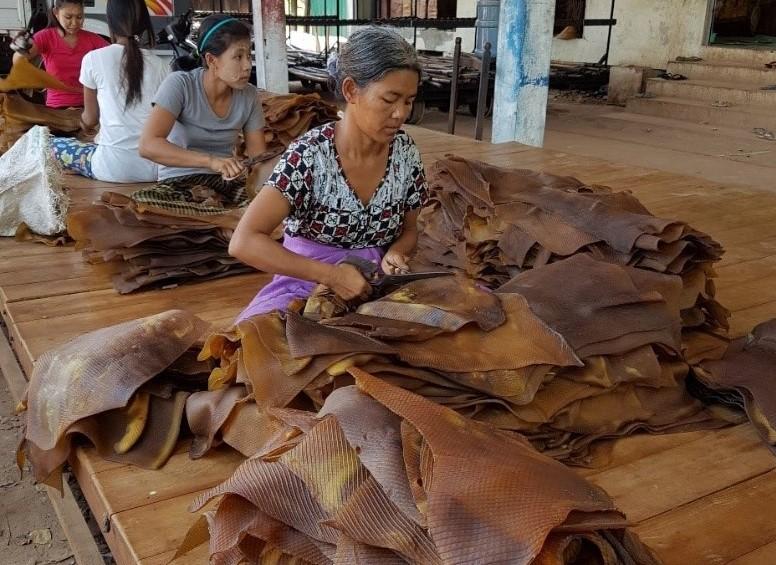- Home
- Worldwide
- CIRAD worldwide
- Projects
- GRO Myanmar project
Improving the productivity and quality of small rubber plantations in Myanmar - GRO Myanmar

Manual checking of rubber sheets (RSS) and removal of impurities prior to sale, in a factory in Mon State © B. Chambon, CIRAD
Issues
In Myanmar, the area under rubber more than trebled in 10 years as of the 2000s. Despite its small contribution to the economy (1% of GDP), rubber is one of the country’s main agricultural exports. The rubber sector has strong potential for development, which would have positive socioeconomic impacts, especially in terms of job creation. However, it faces several difficulties. Problems accessing selected plants and their certification, and poor agricultural practices, especially in tapping, explain the low productivity of plantations. Substantial differences in the quality of the rubber produced and difficulties accessing international markets mean a lower selling price. These constraints affect income for all actors in the sector, and especially producers, 90% of which are small family farms (less than 8 hectares). Since 2011, the price of rubber has continued to fall, and it is thus essential to improve productivity and quality to ensure the future of rubber production in Myanmar.
Description
Based on an approach known as “making markets work for the poor” - which focuses on the producers' environment to make the sector more competitive and resilient - the goal of the project is to improve:
- the productivity of rubber plantations ;
- the quality of natural rubber ;
- the capacity to innovate, the impact of innovation and the management of knowledge by institutions in Myanmar connected to rubber production.
CIRAD focuses more specifically on capacity building for research and development centres and on supporting networks of actors (research institutes, public sector and private sector). CIRAD thus organizes training, assists studies and field experiments by partners, and provides scientific and technical support to improve access to international markets (through, for example, accreditation of the country's two quality certification laboratories by the International Rubber Association).
Expected impacts
- The different public and private sector institutions and universities involved in support for rubber production in Myanmar will be better trained, well organized and have greater recognition on an international level.
- The incomes and livelihoods of producers (owners and tappers) will have been improved, especially thanks to higher plantation productivity and higher rubber quality, as well as better access to technical and price information and services.
Contract partner
Care International in Myanmar (coordinator)























